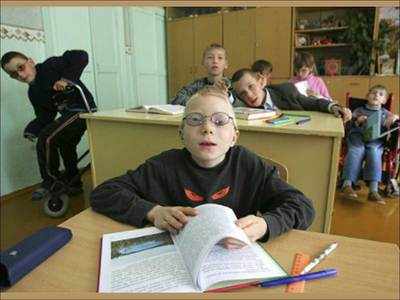- News
- Education News
- News
- Why disability studies needs a multidisciplinary approach
Trending
This story is from January 5, 2021
Why disability studies needs a multidisciplinary approach
Experts hope a niche disability studies and rehabilitation sciences university will raise the bar of special education by churning out trained professionals

Image is used for representational purpose only. (Getty Images)
The Department of Empowerment of Persons with Disabilities (DEPwD), under the Ministry of Social Justice and Empowerment, has sought comments from stakeholders on a draft bill to set up a disability studies and rehabilitation sciences university at Kamrup district in Assam. With eight departments under its wing, the varsity will cover the entire gamut of the field in areas such as rehabilitation sciences; audiology and speech language pathology; special education; psychology to mention a few.The aim would be to provide multidisciplinary research and courses from UG level onwards in an accessible environment.
Lauding the proposal, Hemlata, director, National Centre for Disability Studies, Indira Gandhi National Open University (IGNOU) says, this will address the myriad needs of persons with disabilities. “A specialist in intellectual disabilities, for instance, should be able to address the needs of a hearing-impaired child.” Around two years back, CBSE had instructed schools to appoint special educators. Taking on from there, the university will be able to produce skilled special educators. “In a country like India, where 2.1% of the population are persons with disabilities (PwDs), there is a lack of trained professionals and the university may help bridge this gap.”
Regarding the inadequacies in the existing disability studies courses, Madhura Nagchoudhuri, assistant professor, Centre for Disability Studies and Action, School of Social Work, Tata Institute of Social Sciences (TISS), Deonar, Mumbai, says they tend to function in isolation and are often focussed on a single or a few specific types of disabilities. “The courses need to build stronger networks through more collaboration. If that can be facilitated by this new university, it will definitely add value, however it remains to be seen whether this is adequately reflected in its mandate.”
Nagchoudhuri explains that Disability Studies as a discipline has had a strong presence of scholars and researchers who are themselves persons with disability. “There needs to be a lot more representation and participation of the persons with disability in this discussion and in planning for such a university.”
The university would have a self-sustaining model in tune with the National Education Policy (
A credit-based assessment system as laid down by NEP 2020 is expected to ensure quality education to enhance students’ competence in the field.
Lauding the proposal, Hemlata, director, National Centre for Disability Studies, Indira Gandhi National Open University (IGNOU) says, this will address the myriad needs of persons with disabilities. “A specialist in intellectual disabilities, for instance, should be able to address the needs of a hearing-impaired child.” Around two years back, CBSE had instructed schools to appoint special educators. Taking on from there, the university will be able to produce skilled special educators. “In a country like India, where 2.1% of the population are persons with disabilities (PwDs), there is a lack of trained professionals and the university may help bridge this gap.”
Regarding the inadequacies in the existing disability studies courses, Madhura Nagchoudhuri, assistant professor, Centre for Disability Studies and Action, School of Social Work, Tata Institute of Social Sciences (TISS), Deonar, Mumbai, says they tend to function in isolation and are often focussed on a single or a few specific types of disabilities. “The courses need to build stronger networks through more collaboration. If that can be facilitated by this new university, it will definitely add value, however it remains to be seen whether this is adequately reflected in its mandate.”
Nagchoudhuri explains that Disability Studies as a discipline has had a strong presence of scholars and researchers who are themselves persons with disability. “There needs to be a lot more representation and participation of the persons with disability in this discussion and in planning for such a university.”
Since the proposed university will affiliate other institutions, the primary concern is whether it will have national jurisdiction. “The Rehabilitation Council of India gives recognition to all institutions offering programmes in special education and rehabilitation; in that case, which body will conduct the monitoring and implementation of the affiliation,” Hemlata asks.
The university would have a self-sustaining model in tune with the National Education Policy (
NEP) 2020, where funds would be generated through tuition fees and affiliation charges much like other training centres in the country. Nagchouduri takes strong exception to this saying, “Why is it that the IITs and IISERs are given sustained support for years after they were set up but in case of a disability studies university that needs support and time, there is talk of a self-sustaining model from the beginning.”
A credit-based assessment system as laid down by NEP 2020 is expected to ensure quality education to enhance students’ competence in the field.
End of Article
FOLLOW US ON SOCIAL MEDIA










